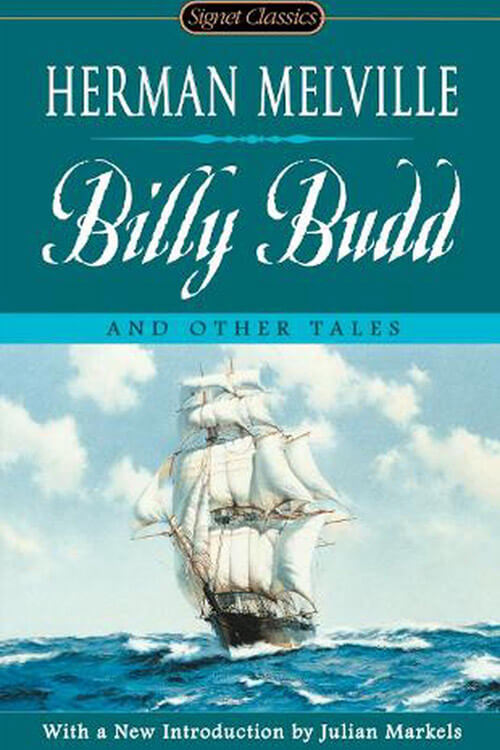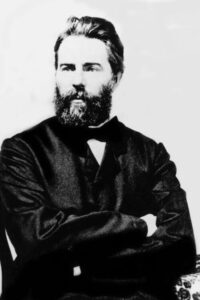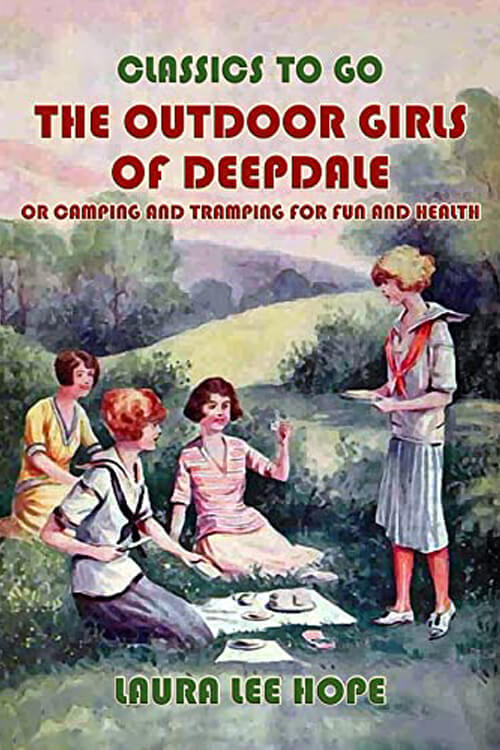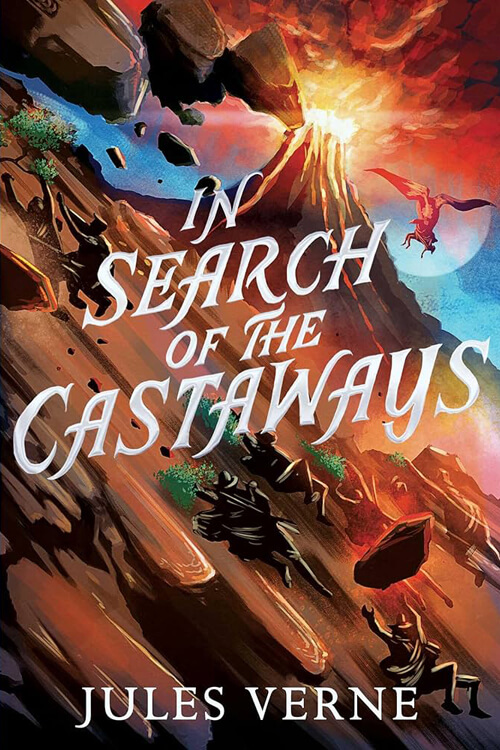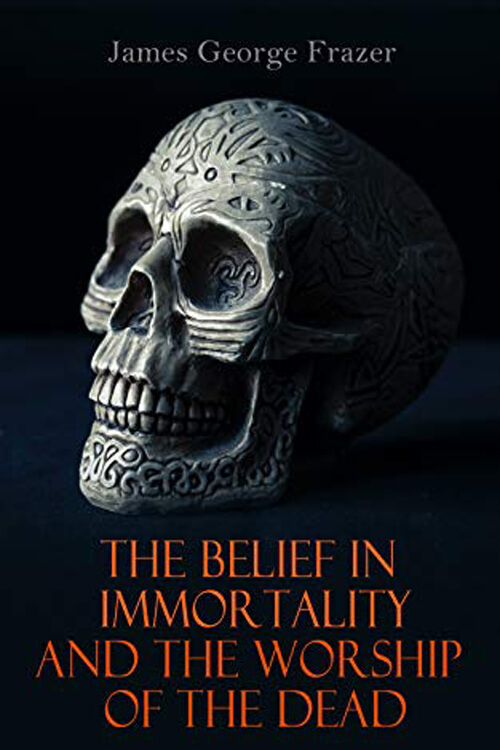
Billy Budd
Billy Budd is a seaman impressed into service aboard HMS Bellipotent in 1797 when the Royal Navy was reeling from two significant mutinies and was threatened by the Revolutionary French Republic’s military ambitions. He is impressed by this large warship from another, smaller merchant ship, The Rights of Man (named after the book by Thomas Paine). Budd shouts, “And goodbye to you too, old Rights-of-Man, ” as his former ship moves off.” Billy, a foundling from Bristol, has innocence, good looks, and a natural charisma that make him popular with the crew. He has a stutter, which becomes more noticeable when under intense emotion. He arouses the antagonism of the ship’s master-at-arms, John Claggart. Claggart, while not unattractive, seems somehow “defective or abnormal in the constitution”, possessing a “natural depravity.” Envy is Claggart’s explicitly stated emotion toward Budd, foremost because of his “significant personal beauty” and also for his innocence and general popularity. (Melville further opines that envy is “universally felt to be more shameful than even felonious crime.”)
This leads Claggart to charge Billy with conspiracy to mutiny falsely. When the captain, Edward Fairfax “Starry” Vere, is presented with Claggart’s charges, he summons Claggart and Billy to his cabin for a private meeting. Claggart makes his case, and Billy astounded, cannot respond due to his stutter. In his extreme frustration, he strikes out at Claggart, killing him instantly. Vere convenes a drumhead court-martial. He convenes authority, prosecutor, defence counsel, and sole witness (except for Billy). He intervenes in the deliberations of the court-martial panel to persuade them to convict Billy despite their beliefs in Billy’s moral innocence. (Vere says in the moments following Claggart’s death, “Struck dead by an angel of God! Yet the angel must hang!”) Vere claims to follow the letter of the Mutiny Act and the Articles of War. Although Vere and the other officers do not believe Claggart’s conspiracy charge and think Billy is justified in his response, they find that their opinions matter little. The martial law, in effect, states that during wartime, the blow itself, fatal or not, is a capital crime. The court-martial convicts Billy following Vere’s argument that any appearance of weakness in the officers and failure to enforce discipline could stir more mutiny throughout the British fleet. Condemned to be hanged the morning after his attack on Claggart, Billy’s last words before his execution are “God bless Captain Vere!” which are repeated by the gathered crew in a “resonant and sympathetic echo.”
Read or download Book
Herman Melville
Herman Melville (born Melvill August 1, 1819 – September 28, 1891) was an American novelist, short story writer, and poet of the American Renaissance period.
Biography
Among his best-known works are Moby-Dick (1851); Typee (1846), a romanticized account of his experiences in Polynesia; and Billy Budd, Sailor, a posthumously published novella. At the time of his death, Melville was no longer well known to the public, but the 1919 centennial of his birth was the starting point of a Melville revival. Moby-Dick eventually would be considered one of the great American novels. Melville was born in New York City, the third child of a prosperous merchant whose death in 1832 left the family in dire financial straits. He took to sea 1839 as a common sailor on a merchant ship and then on the whaler Acushnet, but he jumped ship in the Marquesas Islands. Typee, his first book, and its sequel, Omoo (1847), were travel adventures based on his encounters with the peoples of the islands. Their success gave him the financial security to marry Elizabeth Shaw, the daughter of the Boston jurist Lemuel Shaw.
Mardi (1849), a romance-adventure and his first book not based on his own experience, was not well received. Redburn (1849) and White-Jacket (1850), both tales based on his experience as a well-born young man at sea, were given respectable reviews but did not sell well enough to support his expanding family. Melville’s growing literary ambition showed in Moby-Dick (1851), which took nearly a year and a half to write. Still, it did not find an audience, and critics scorned his psychological novel Pierre: or The Ambiguities (1852). From 1853 to 1856, Melville published short fiction in magazines, including “Benito Cereno” and “Bartleby, the Scrivener”. In 1857, he travelled to England, toured the Near East, and published his last work of prose, The Confidence Man (1857).
He moved to New York in 1863, eventually taking a position as a United States customs inspector. From that point, Melville focused his creative powers on poetry. Battle-Pieces and Aspects of the War (1866) was his poetic reflection on the moral questions of the American Civil War. In 1867, his eldest child Malcolm died at home from a self-inflicted gunshot. Melville’s metaphysical epic Clarel: A Poem and Pilgrimage in the Holy Land was published in 1876. In 1886, his other son Stanwix died of apparent tuberculosis, and Melville retired. During his last years, he privately published two poetry volumes, leaving one unpublished. The novella Billy Budd was left unfinished at his death but was published posthumously in 1924. Melville died from cardiovascular disease in 1891.

